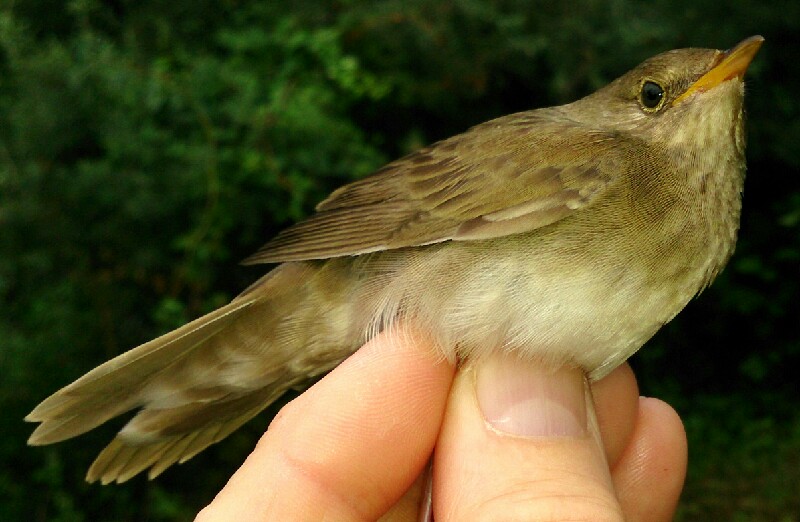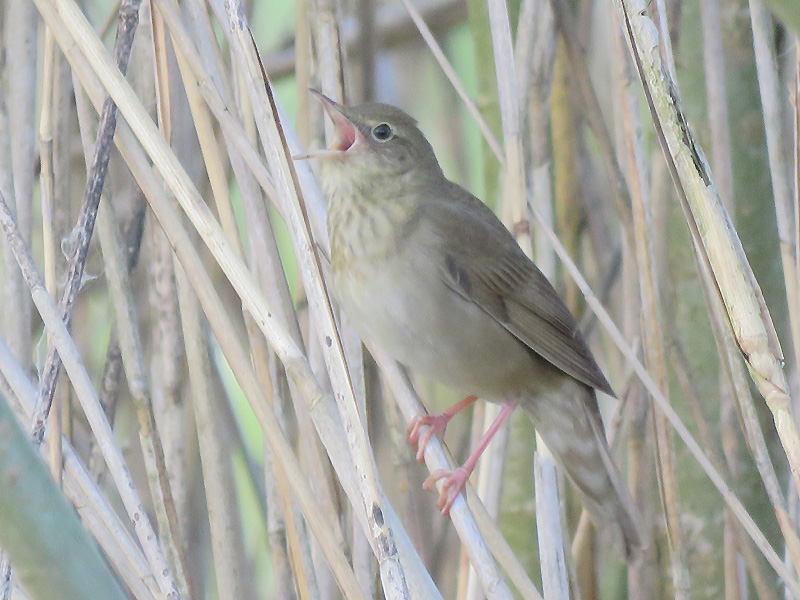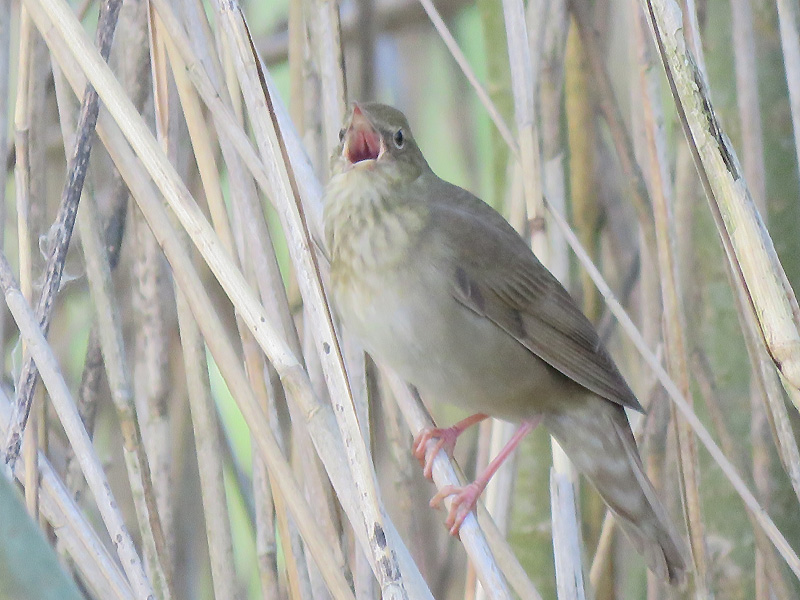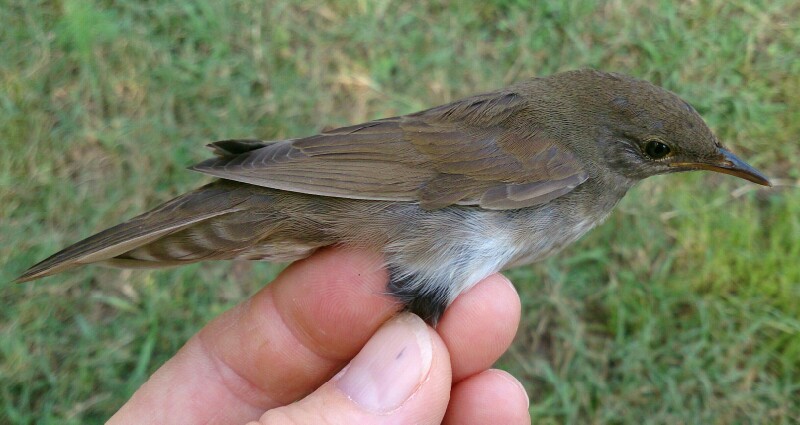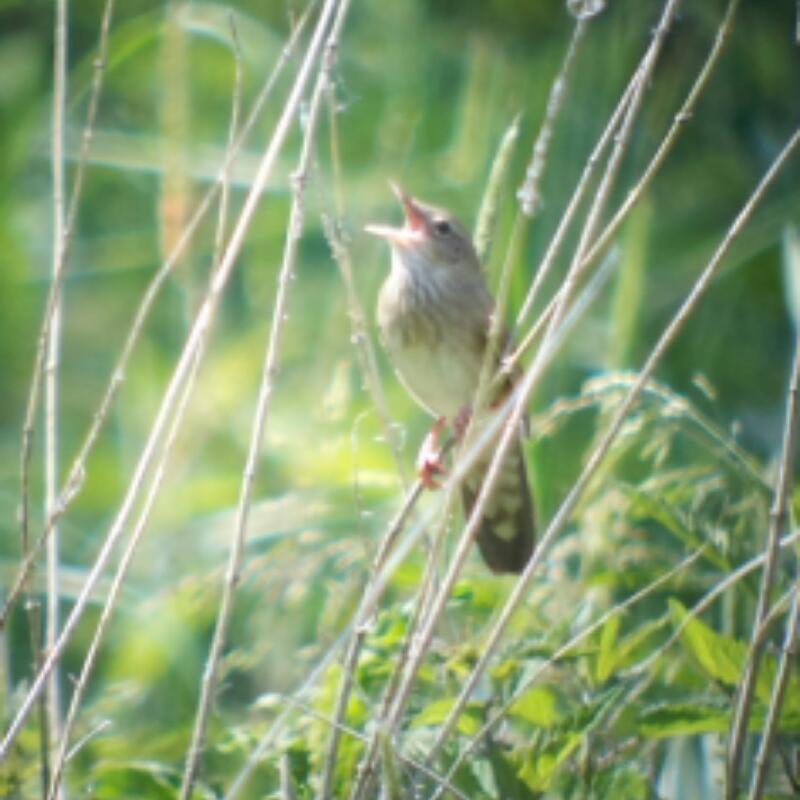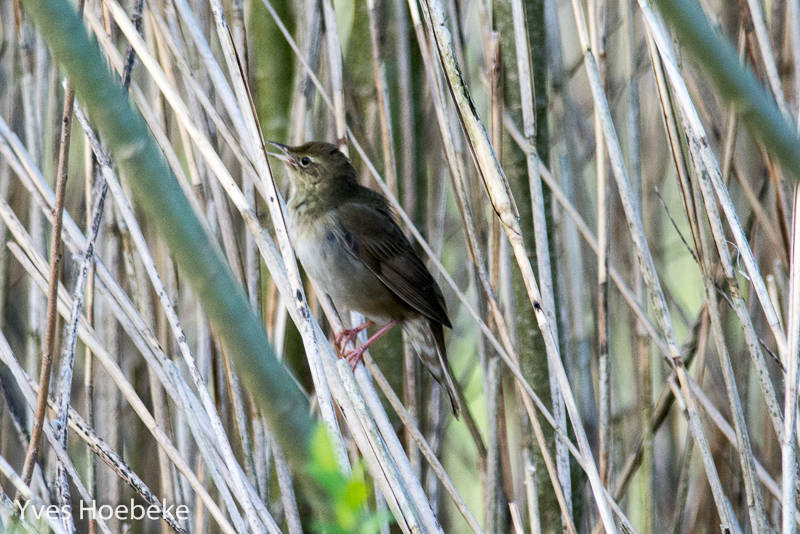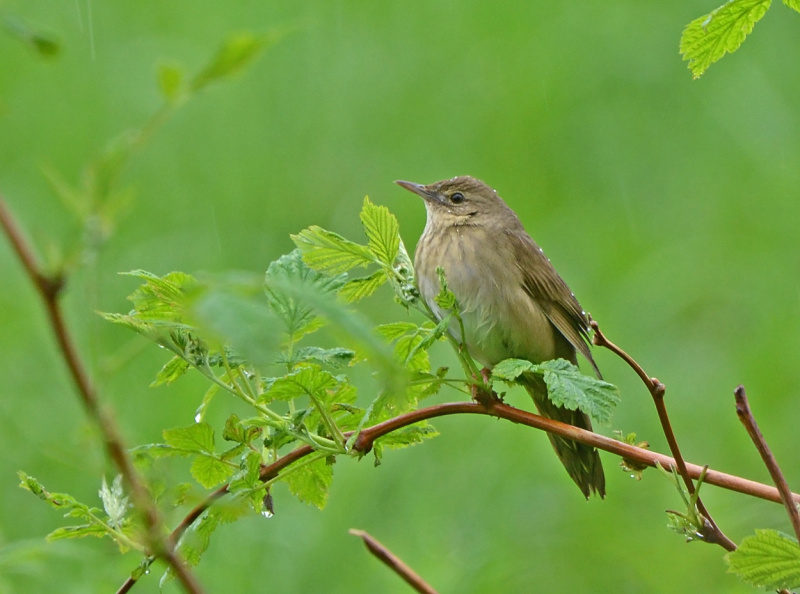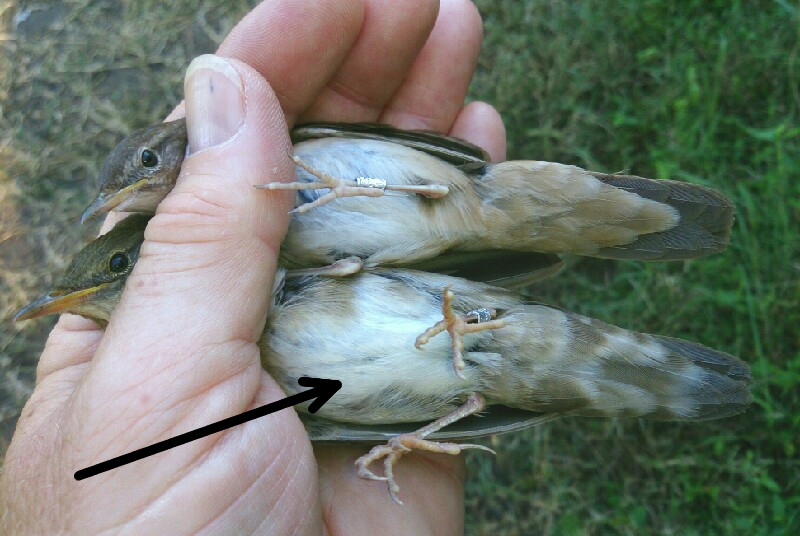Topography (Anatomy and explanation)
River Warbler (Locustella fluviatilis)
Description of main identification features in chosen species' appearance. Some bird anatomy terms are used, and it may be useful to study the photos above to learn them. All text written by Audun Eriksen.
Sound:Description of song and calls, and what to listen for in the audio files, and when learning the species. Some music terminology is used. Timbre: tone colour or tone quality. Ritardando: Tempo slowing down gradually. Register break: abrupt change in pitch due to sudden jump in resonating length of throat (typically in long-necked birds).
Distribution: Ecology:Link to webpage describing ecology and population of the species.
Links:
A collection of hyperlinks for each species can be found here. You can easily see latest observations, additional photos/sounds and watch videos of the species without having to search for the species name.
CCCreative Commons licenced photos and sounds are listed here with links. For media not listed, usage is permitted by direct appointment with copyright owner. See watermark on photos.
A long-tailed and relatively long-winged Locustella, with olive-brown plumage and pale belly. Conspicuously broad, rounded tail, and substantial vent. Under tail coverts brown with with prominent pale fringes, and almost reaches tail tip. Faintly streaked throat and breast. Rump and tail warmer brown than back. Faint and short supercilium and pale eye-ring. First long primary with pale outer web, and a slight curve. Song-posts often more exposed than Grasshopper Warbler.
Sound:Song an insectlike, buzzing like Grasshopper and Savi's Warbler, but easily distinguished from those by it's distinct steam locomotive-like rhythm. About 8 accents per second. Perhaps easier to confuse with certain species of ground crickets or cicadas than it's congeners. Contact call a sharp "tsikk-tsikk", similar to Savi's Warbler.
Song:
Distribution:
Xeno-canto: map
Ecology:Birdlife ecology
Links:
Observation.org Latest observations
Image search Flickr NB! May give other species
CC
 English
English Albanian
Albanian
 Armenian
Armenian
 Bulgarian
Bulgarian
 Catalan
Catalan
 Croatian
Croatian
 Czech
Czech
 Danish
Danish
 Dutch
Dutch
 Finnish
Finnish
 French
French
 Georgian
Georgian
 German
German
 Greek
Greek
 Hungarian
Hungarian
 Italian
Italian
 Latvian
Latvian
 Lithuanian
Lithuanian
 Macedonian
Macedonian
 Norwegian
Norwegian
 Polish
Polish
 Portuguese
Portuguese
 Romanian
Romanian
 Russian
Russian
 Sami : Lule sami
Sami : Lule sami
 Sami : North sami
Sami : North sami
 Sami : South sami
Sami : South sami
 Scientific names
Scientific names
 Serbian
Serbian
 Spanish
Spanish
 Swedish
Swedish
 Ukrainian
Ukrainian

